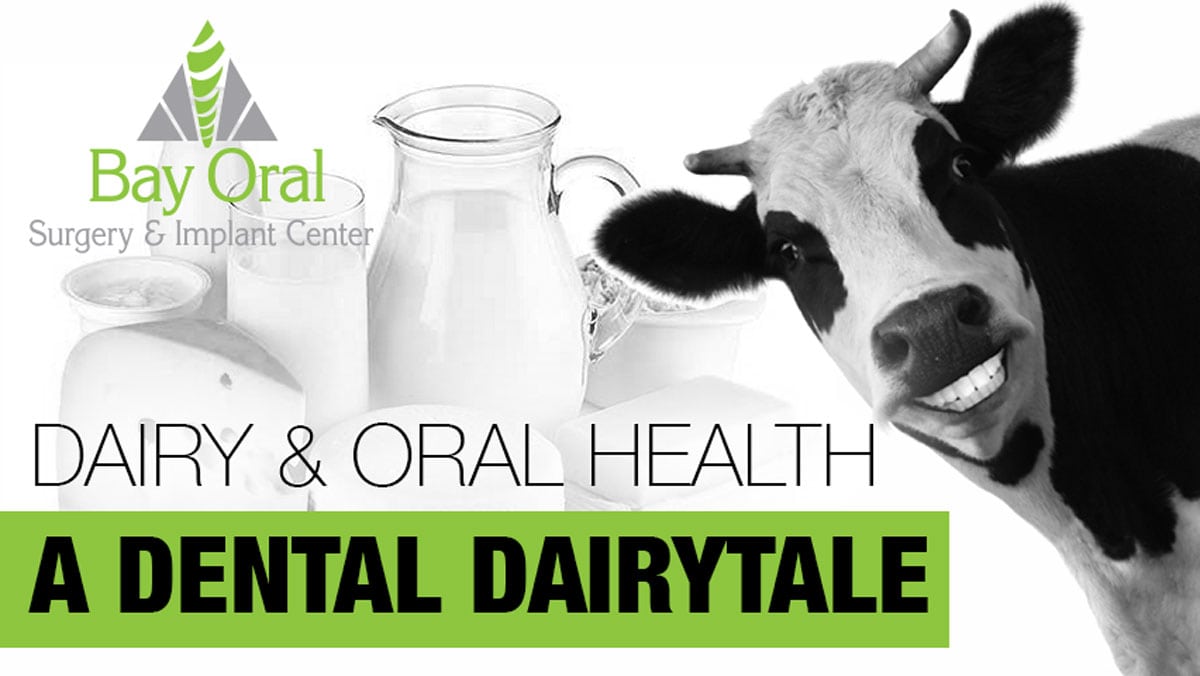
It’s dairy month! Here in Wisconsin, you certainly don’t need to be reminded of that. But we thought we would remind you of how dairy can promote oral health and prevent the risk of tooth decay and dental disease. We have the facts about your favorite dairy products and how they love your teeth.
 Cheese can protect you from cavities. (source)
Cheese can protect you from cavities. (source)
A study done in 2013 and published in the peer-reviewed clinical journal of the Academy of General Dentistry (AGD), found that of three types of dairy products consumed, milk, cheese, and yogurt, cheese showed a rapid increase in pH levels in the mouth. Why is this important?
The authors determined that a pH level at or below 5.5 puts you at a higher risk of tooth erosion. Tooth erosion happens when acids wear away the protective enamel on your teeth. As we know, tooth erosion is irreversible and without our protective enamel, often leads to tooth decay, or as we commonly call it, cavities.
AGD spokesperson, Seung-Hee Rhee, DDS, FAGD had this to say: “It looks like dairy does the mouth good. Not only are dairy products a healthy alternative to carb- or sugar-filled snacks, they also may be considered as a preventive measure against cavities.”
 Milk can keep your teeth strong. (source)
Milk can keep your teeth strong. (source)
There’s been some debate in recent years about the true benefits of milk on bones and teeth. We have known for years that milk is an excellent source of calcium and vitamin D. Calcium is a crucial element in strengthening your enamel and protecting your teeth from cavities. Some discussion has considered whether milk can actually draw calcium away from your teeth rather than replenish and restore.
What is important to know about milk, and calcium in general, is that to properly absorb calcium, your body needs to have a sufficient supply of vitamin D. Calcium alone is not enough. And while both calcium and vitamin D can be found in other foods, not all foods contain both the way milk does.
What’s more? Milk has been found to be more effective than fruit juice or water at neutralizing acids in your mouth after eating sugary foods. The same acids that wear away your enamel. Double duty!
 Yogurt can decrease gingivitis and plaque.(source)
Yogurt can decrease gingivitis and plaque.(source)
Just like milk and cheese, yogurt is high in calcium, protecting your teeth’s enamel. But yogurt is also a great source of probiotics. You know, the good healthy gut bacteria that keeps your digestive system healthy and boosts your immune system. Well, that’s not all. The probiotics found in yogurt help to keep your mouth healthy by eliminating bad bacteria (called salivary mutans streptococci) in the mouth. And when the bad bacteria goes, gingivitis and plaque go with it.
Of course, we are talking about sugar-free yogurt. In addition to the natural lactose, lots of yogurts are loaded with added sugar – and you know how we feel about sugar!

